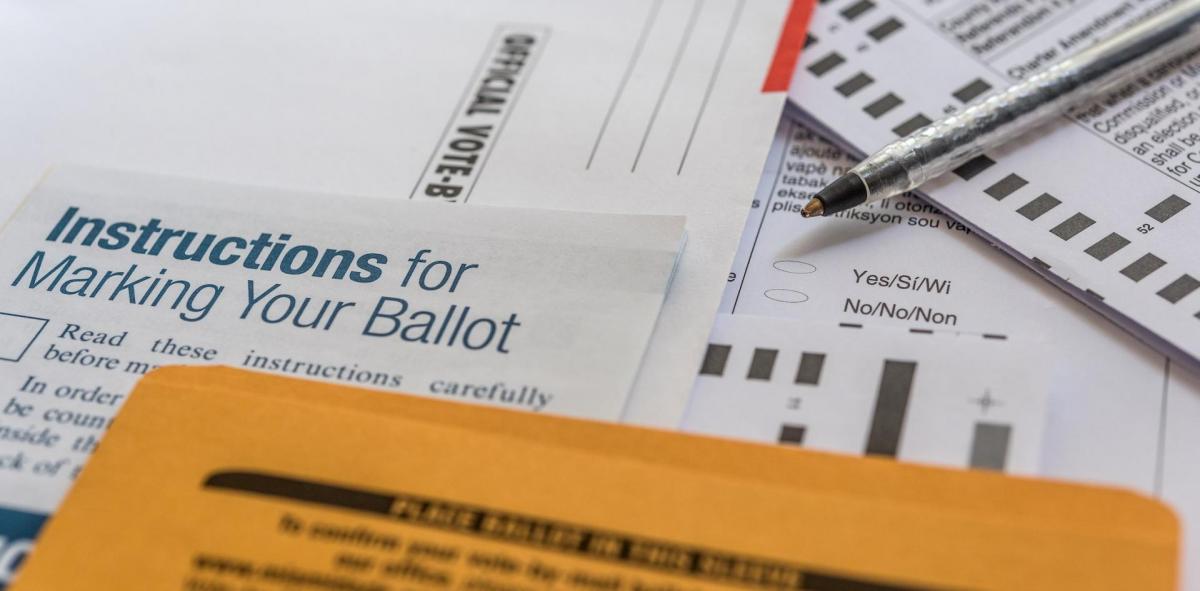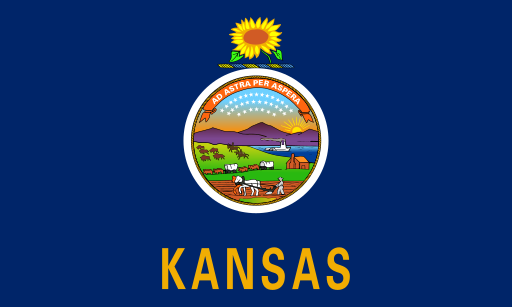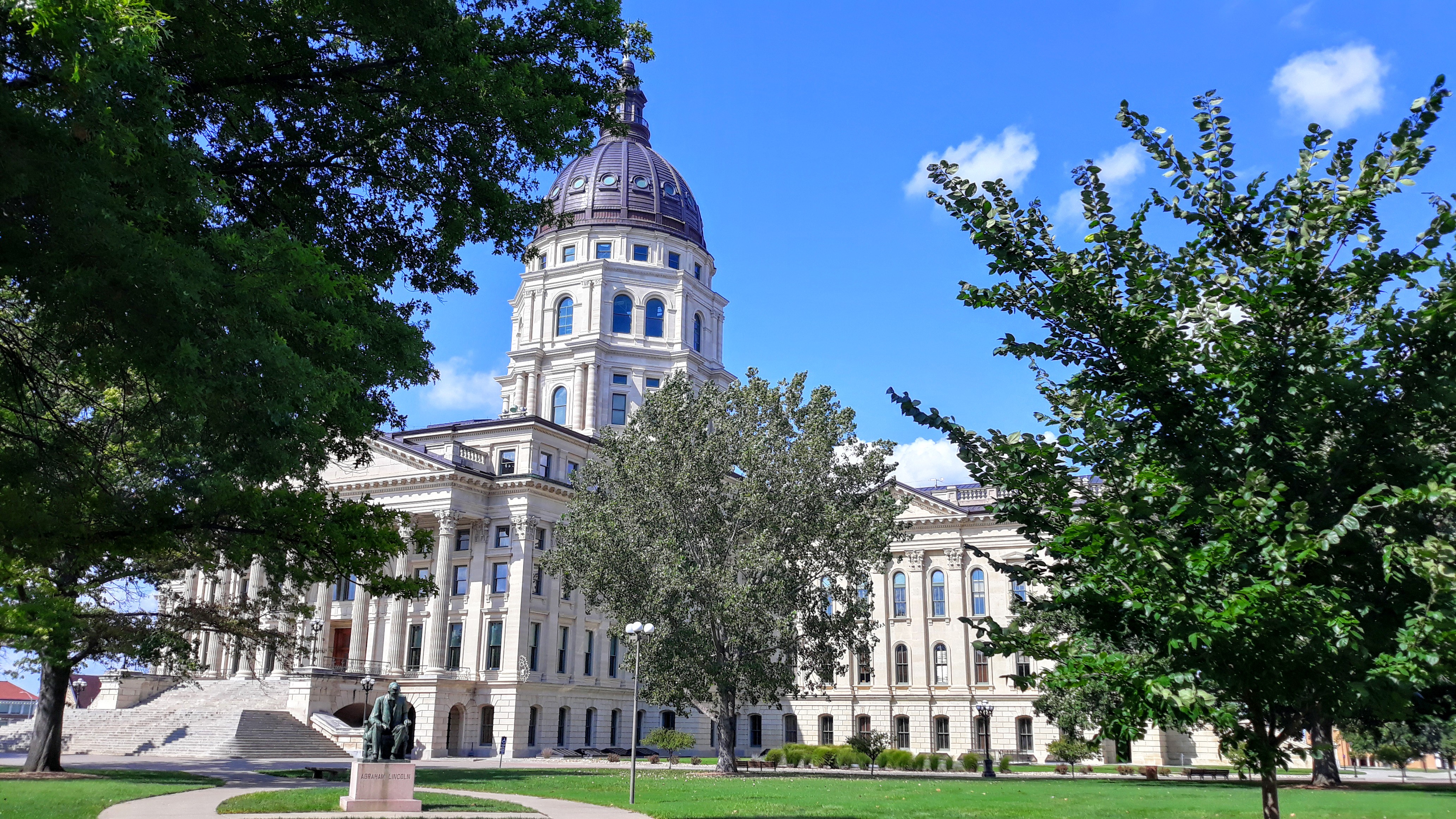Tag: kansas
-
Indiana joins Kansas, Kentucky, and Wyoming in enacting laws to restrict foreign contributions to ballot measure campaigns—the highest number passed in a single year

So far, during the 2025 legislative sessions, four states—Indiana, Kansas, Kentucky, and Wyoming—have enacted new laws restricting foreign contributions to ballot measure campaigns. With these additions, 13 now have laws prohibiting foreign nationals, governments, or other entities from contributing to ballot measure committees. The 13 states with such laws are California, Colorado, Indiana, Kansas, Kentucky,…
-
2025 marks record year as Kansas, Kentucky, and Wyoming join states with laws restricting foreign contributions to ballot measure campaigns

So far, during the 2025 legislative sessions, three states—Kansas, Kentucky, and Wyoming—have enacted new laws restricting foreign contributions to ballot measure campaigns. With these additions, 12 now have laws prohibiting foreign nationals, governments, or other entities from contributing to ballot measure committees. The 12 states with such laws are California, Colorado, Kansas, Kentucky, Maine, Maryland,…
-
Kansas voters will decide on citizenship voting requirement amendment in 2026—similar measures were approved in eight states in 2024

Kansas voters will decide on a constitutional amendment on Nov. 3, 2026, to state that “No person shall be deemed a qualified elector unless such person: (1) Is a citizen of the United States…” Similar measures were approved in eight states in 2024, and South Dakota voters will also be deciding on such an amendment…
-
Kansas voters to decide on amendment for direct election of state Supreme Court justices in August 2026

The Kansas State Legislature voted to send a constitutional amendment to voters that would provide for direct election of state Supreme Court justices and abolish the existing Kansas Supreme Court Nominating Commission. The amendment states that the seven justices would be elected at staggered general elections with positions 1, 2, and 3 elected in November…
-
Republican-led election policy bills advance in Kansas legislative session

All but two state legislatures are currently convening their regular 2025 legislative sessions. Lawmakers in these states have already introduced more than 2,300 bills related to election administration this year. Among states where lawmakers have advanced election policy bills is Kansas. Kansas has a divided government and is one of two states, along with Kentucky,…
-
Kansas House’s veto-proof majority at stake in first state legislative elections under new maps

All 125 seats in the Kansas House are up for election on Nov. 5, 2024. Republicans hold an 85-39 majority in the House, with one vacancy, and members will be elected to two-year terms. With more than two-third control in each chamber, Republicans hold a veto-proof majority, giving them the power to override Gov. Laura…
-
Kansas Senate’s veto-proof majority at stake in 2024 elections under new legislative maps

All forty seats in the Kansas State Senate are up for election on Nov. 5, 2024. Republicans hold a 29-11 majority in the chamber, and members will be elected to four-year terms. This is the first year since redistricting Kansas is holding state Senate elections, since new maps went into effect in August 2022. The…
-
Four presidential tickets will appear on the ballot in Kansas this November

Kansas’s Nov. 5, 2024, general election ballot will feature four presidential candidates and their running mates. They are: Robert F. Kennedy Jr. withdrew from the presidential election in August, but will still appear on Kansas’ ballot. This cycle, there are the same number of candidates on Kansas’ presidential ballot as in three of the five…
-
Roundup of state Medicaid work requirement legislation and ballot measures in 2024

Legislatures in two states — Kansas and Mississippi — considered but did not pass bills to expand Medicaid in 2024. Both bills would have included work requirements. Voters in one state — South Dakota — will decide a ballot measure to allow Medicaid work requirements on November 5. Background Ten states have not expanded Medicaid…
-
Fewer incumbents facing challengers in Kansas state legislative primaries

Kansas has 41 contested state legislative primaries on August 6, 2024. That is the fewest contested primaries in years that all 165 seats of the state legislature have been up for election since Ballotpedia started tracking in 2012. There are 11 contested Democratic primaries and 30 contested Republican primaries. This was a record low for…

